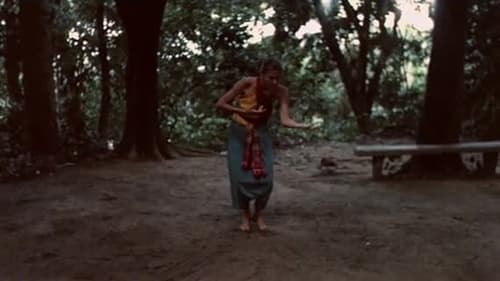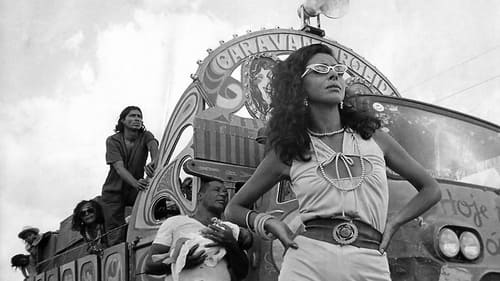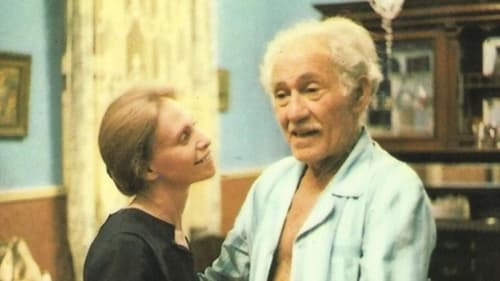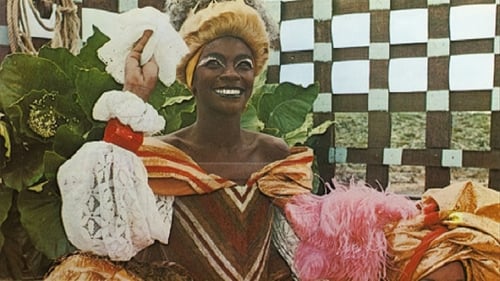
Editor
Simone is a young law student who studies criminal law and advocates for women's rights. On her free time, she's a cam girl that makes live sexual performances on the Internet. One night, she watches a video that awakens her interest in BDSM-related activities, leading her into a series of conflicts dominated by violence and eroticism.

Editor
A batch of 110 love letters exchanged by two lovers in the 1950s, discovered in Mato Grosso do Sul, is the starting point for this film.

Editor
The life of legendary Brazilian musician Alfredo da Rocha Vianna Filho, better known as Pixinguinha.

Editor
Stela, a young Brazilian actress, decides to make a work on the letters exchanged between Latin American plastic artists in the 70s and 80s. She travels to Cuba, Mexico, Argentina and Chile looking for her works and testimonies about the reality they lived during the dictatorships that most of these countries faced at the time. In the midst of the investigation, Stela discovers the existence of Ana, a young Brazilian artist who was part of this world, but disappeared. Ana went from southern Brazil, from a small town in the interior to Buenos Aires. Obsessed by the character, Stela decides to find her and find out what happened to her.

Editor
One man, two lovers: Ana and Anna, living in identical apartments. Paranoia is the name of the game in this hallucinatory.

Editor

Editor
Returning early from his vacation after the Carnival period to investigate the murder of a young French tourist, Breno Wanderley is faced with possible reflections of his own history from which he cannot escape. Between Ash Wednesday and post-Carnival Sunday, Breno tries to unravel the crime and sees in his son, also called Breno, a chance to reinvent himself in a broken and sullen city.

himself

Editor
During the Second World War, a cooperation agreement between the Brazilian and US governments led to the transportation of around 60,000 men from the Northeast of Brazil to the Amazon Region to work on the extraction of latex destined for the American arms industry. Half of these men died before they could return home and many others are still awaiting recognition as "national heroes" and the pensions equal to those of servicemen they had been promised.

Editor
The story of five generations of the Austrian-Brazilian Knieps family, from the inauguration of their family-owned Great Mystical Circus in the 1910s up to the early 21st century, following both the family and the circus from their prime through to their decadence.

Editor
Muestra el conflicto entre Camila, una psicoanalista y su paciente Gloria. Gloria trata de seguir con su vida a pesar de los traumas causados por su padre y hermano, y en las sesiones se dará una relación de contratransferencia, donde el miedo del otro dominará la trama.

Editor
The documentary shows the 450 years of the rich history of the city of Rio de Janeiro and its profound transformations, using archive images, 3D simulations and testimonials.

Editor
When an 80 year old intellectual is confronted with issues of old age and death, she reminisces the death of her mother that happened 30 years earlier. With dialogue inspired by Simone de Beauvoir mixed with contemporary dance, the cycle of life is exposed in a poetic manner.

Editor
When the Netuno Circus returns to Fernando de Noronha, it brings back a young man with a turbulent past. Pedro is now Zolah, the human cannonball. When secrets surface, bizarre family reunions rival the circus performances.

Editor
Basada en hechos reales sobre la participación de Brasil en la Segunda Guerra Mundial, la película recrea el inusual encuentro entre desertores de tres nacionalidades (Brasil, Alemania e Italia) durante la guerra.

Editor
A documentary on cultural identities, with an emphasis on music and African religions in Cuba and Pernambuco, Brazil, seen through the eyes of two artists: a Cuban actress and theater director, and a Brazilian “coquista” and holy mother of Pernambuco, each one visiting the country of the other. The film documents the Festival del Caribe, held annually in Santiago de Cuba, during its thirtieth edition honoring Pernambuco.

Editor
Brasil /// Año 1978. El régimen militar que gobierna Brasil desde el golpe de estado de 1964 parece que comienza a tambalearse. En ese contexto, un soldado de 18 años (Jesuita Barbosa) se enamora de un intelectual (Irandhir Santos) que tiene un cabaret anarquista, un hombre mayor que él que se niega a aceptar la dictadura.

Editor
En la habitación de un hospital, donde un grupo de amigos, antiguos revolucionarios en la década de los sesenta, rememoran su juventud en el lecho de muerte de uno de los suyos, Ana.

Editor
"A Long Journey" tells the story of three siblings who reach adolescence in the late 1960's. The documentary's storyline follows the youngest brother's travels around the world. Worried that he would enter the struggle for freedom against the Brazilian dictatorship, his family sent Heitor to London. There however, he dives head on into the "Swinging London" and, just like the European and American youth of the time period, he experiments with drugs and the mystic allure of India. In the nine years he has traveled around the world, from 1969 to 1978, he has regularly written to his family. The documentary features interviews with Heitor today, his letters and off-screen comments of Heitor's sister, Lúcia Murat, the director of the movie.

Editor
For more than 50 years, Durvinha and Moreno hid their real identity even to their own children, who grew up thinking their parents' names were Jovina Maria and Jose Antonio Souto. They had belonged to the gang of the most famous Brazilian bandit's leader. The truth was revealed when Moreno, at the age of 95, decided to share the weight of memories with his children and meet alive relatives, including his first child. The 'cangaceirismo' was a form of 'social banditry' born in northeastern Brazil in the early XX century in a scenario of extreme poverty, violence and anarchy.

Editor
A host of personalities reminisce about the life and work of songwriter, lawyer, and congressman Humberto Teixeira — aka "Baião Doctor" — the author of such classic Brazilian popular songs as "Asa Branca". A musical film about the baião, a movement in Brazilian music in the 1940s and 1950s that was later snowed under by samba and bossa nova.

Editor
Free adaptation of Romeo and Juliet translated to the harsh life in Favela da Maré, one of largest and most violent slums in Rio de Janeiro. Living in a slum divided between two rival gangs of drug traffickers, Analídia is the daughter of one of the gangs' leaders and Jonathan is a childhood friend of the other gang leader. Both study in a dance group situated exactly in the middle of the two territories, looking for solace in art.

Editor
Cortos inusuales de portmanteau con 4 cuentos inspirados en el folklore brasileño

Editor
In São Paulo, in the late 1960s, the convent of the Dominican friars became a trench of resistance to the military dictatorship that governs Brazil. Moved by Christian ideals, frets Betto, Oswaldo, Fernando, Ivo and Tito came to support the guerrilla group Ação Libertadora Nacional, commanded by Carlos Marighella.

Editor
Documentary on the life and times of one of the most prominent Brazilian samba composers, Cartola (Angenor de Oliveira).

Editor
En un pueblo aislado y agobiado por las lluvias torrenciales, los habitantes viven no solamente en la miseria, sino también hostigados por la represión política. Existe una guerra por el poder entre la familia que detenta el control económico de la región y el interventor enviado por el Gobierno central. Por si esto no fuera suficiente, aparecen panfletos anónimos pegados en las puertas de las casas, revelando las intimidades de sus moradores. En medio de este caos, surgen todo tipo de pasiones, traiciones y venganzas, sin que los implicados sepan dónde empieza la verdad y dónde acaba la mentira. Basada en la novela de Gabriel García Márquez La mala hora, la película cuenta una historia de amor y odio en la que el pasado y el futuro se confunden. (FILMAFFINITY)

Editor
Contemporary film critics regard the epic film I Am Cuba as a modern masterpiece. The 1964 Cuban/Soviet coproduction marked a watershed moment of cultural collaboration between two nations. Yet the film never found a mass audience, languishing for decades until its reintroduction as a "classic" in the 1990s. Vicente Ferraz explores the strange history of this cinematic tour de force, and the deeper meaning for those who participated in its creation.

Editor
Encargado de delimitar el territorio entre España y Portugal, un cartógrafo es escoltado por un grupo de soldados a través de la selva del mato grosso. Un sendero inagotable que, entre flechas y acosos, disputa los verdaderos límites de la paz. (FILMAFFINITY)

Editor
Ruy Guerra adapta la novela de Chico Buarque en una película moderna y poco convencional que narra las pesadillas de un personaje anónimo llamado "I" (Jorge Perugorría) que vaga por una gran ciudad. La angustia, la fuga y la inquietud de un personaje nervioso y desconocido, se envuelven en una trama de suspense. Estrenada en el Festival de Cannes, donde fue a la selección oficial. (FILMAFFINITY)

Editor
The history of Simião Martiniano.

Editor
A film essay about Brazil discovered through Orson Welles' eyes during the shooting of It's All True.

Editor
The story of two immigrant couples: Teresa and Angelo; Pierina and Massimo. While fighting for survival in the new world, the unexpected love of Massimo and Teresa appears. They react against family and cultural traditions and leave to a new destiny, leaving their partners. Quatrilho is the name of a card game in wich the player have to betray his partner in order to become the champion.

Editor
Four love stories which portray a wide gamut of emotions and desires against the backdrop of Rio de Janeiro. "Elephant's Stomp" : the story of a highway patrol officer who is infatuated with a mulatto dancer at a local nightclub. "Drao" : a publicity man and a boutique owner who face a crises in their marriage. "You Are Beautiful" : two homeless teenagers seek love amidst their personal misery. "Samba of the Great Passion" : a book maker who is charmed and captivated by the voice of a female singer coming from a building across the street. Characters in search of love in order to escape from the boredom, loneliness and helplessness of their lives.

Editor
Orestes, a rich factory owner, falls for the beautiful Fulvia. They communicate using pigeons, to avoid being discovered by her husband.

Executive Producer
Orestes, a rich factory owner, falls for the beautiful Fulvia. They communicate using pigeons, to avoid being discovered by her husband.

Editor
This epic Brazilian film was based on the equally epic novel by Antonio Callado. Set between 1954 and 1964, the film's focus is the saga of Jesuit priest Nando. Fed up with civilization, he ventures deep into Amazon country to live with and work among the Xingu Indians.

Executive Producer
This epic Brazilian film was based on the equally epic novel by Antonio Callado. Set between 1954 and 1964, the film's focus is the saga of Jesuit priest Nando. Fed up with civilization, he ventures deep into Amazon country to live with and work among the Xingu Indians.

Editor
According to an Amazonian legend, every month, during the full moon, a Brazilian fishing village receives a mysterious guest: the Boto, who transforms into a human to seduce and be loved by women and hated by men. One of her conquests is the daughter of a fisherman, who has a son with the Boto. He constantly reappears to seduce her, and even when she marries, he continues to look for her. This provokes the ire of the husband, who wants to kill him anyway.

Editor
A fragmented style, patchwork of interviews with Caetano Veloso's friends, mixed with conversations, thoughts, scenes of dance and literature excerpts.

Editor
In Rio de Janeiro's bohemian district called Lapa, during the '40s, a stylish and popular scoundrel exploits a cabaret singer, and earns his living by means of petty swindles. But then he meets Ludmila, the cabaret owner's daughter, who wants to get rich smuggling goods in times of war.

Editor
Young and recently separated couple meet in a modern house and start discussing their past relationship.

Editor
Quilombo dos Palmares was a real-life democratic society, created in Brazil in the 17th century. This incredibly elaborate (and surprisingly little-known) film traces the origins of Quilombo, which began as a community of freed slaves. The colony becomes a safe harbor for other outcasts of the world, including Indians and Jews. Ganga Zumba (Toni Tornado) becomes president of Quilombo, the first freely elected leader in the Western Hemisphere. Naturally, the ruling Portuguese want to subjugate Zumba and his followers, but the Quilombians are ready for their would-be oppressors. The end of this Brave New World is not pleasant, but the followers of Zumba and his ideals take to the hills, where they honor his memory to this day. Writer/director Carlos Diegues takes every available opportunity to compare the rise and fall of Quilombo with the state of affairs in modern-day Brazil.

Consulting Editor
A documentary on Brazilian poet and composer Vinicius de Moraes, made by his daughter a few months before his death.

Editor
The rescue of a real character from the work of Mario de Andrade. Chico Antônio is a singer and poacher of the interior of Rio Grande do Norte. As he climbed the stems to reach the fruits, he sang and enchanted those who passed by. And Mário de Andrade was one of those spectators, because he loved the warm climate of the equatorial lands

Editor
Desgarrador encuentro entre un hombre y una mujer que desean amarse y entenderse, pero al mismo tiempo le temen poderosamente al encuentro, al intercambio, a la profundidad en la relación.

Editor
The Caravana Rolidei rolls into town with the Gypsy Lord at the mike: he does magic tricks, the erotic Salomé dances, and the mute Swallow performs feats of strength. A young accordion player is completely enamored of Salomé, and he begs to come along. The Gypsy Lord shrugs, and the accordionist and his pregnant wife, Dasdô, join the troupe.

Editor
During the Carnival, in Niterói, the son of a Lira do Delírio nightclub dancer is kidnapped. With the help of a journalist friend, she dives into Rio de Janeiro's underworld and meet all kind of criminals. She also goes back in time, to a past carnival, where she thinks she might pin-point the culprit among a group of people.

Editor
70-year-old widower living in a poor Rio de Janeiro suburb falls in love again when he finds a woman of approximately the same age.

Editor
Describe la vida de Xica; una singular esclava negra en tiempos de la Colonia, mujer que cautivara al contratador de una región rica en diamantes, Gonzalo Fernández de Oliveira y, a base de audacia y desenfado, ascendiera hasta reina de su imperio.

Editor
A millionaire lives in a sinister cottage where strange events unfold. A damned creature, he transforms himself in a werewolf and leads a following whose adepts spread horror and despair in the neighboring city, becoming themselves a clan of assassins. One day, the werewolf confronts Branca Justiça (White Justice), who summons benign forces to scathe them and frees him of his own wickedness.

Editor

The importance of the Cannes Film Festival in world terms and what it represented for Brazil in 1971. For Brazilian cinema, Cannes 71 represented the transition from film to industrialized production. It is the meeting of producers, technicians, critics , celebrities in general, offering opportunities for greater knowledge and renewal of values

Editor
The daily life of a Brazilian escort.

Editor
A dysfunctional family, composed of a prostitute and two gays, one strong and the other fragile and stupid, lives a routine life in Rio de Janeiro. When the slut threatens the other two to stop supporting them, they decide to find an odalisque as an alternative to keep their easy life.

Editor
Sônia and her homosexual brother are both believed by their mother to be possessed by the devil. She works as a prostitute in the streets of Copacabana and he’s a servant who falls madly in love with his employer.

Producer
Couple whose marriage is at stake delve into the past, with the help of a diary and some home movies. In these movies, Helena, the woman's suicidal friend, has an important role.

Editor
Santamaria and Urtigo are two bandits on the run, one is white, the other black. Santamaria is a mystical visionary and believes in the imminent coming of a purifying angel. Urtiga, his inseparable companion, is a simple-minded and ingenious man who follows Santamaria around and participates in the crimes he commits. The two bandits take over a house after kidnapping its owner and his girlfriend.

Editor
"Life and work of the Maranhense poet Sousândrade (1833-1902), illustrated with engravings on Brazilian history, from the discovery to the proclamation of the Republic."

Production Manager
A man living with his parents in a low middle-class apartment in Rio de Janeiro coldly stabs them with a razor and then goes to the movies. Marcia, a rich and dissatisfied young woman, takes advantage of a trip from her husband to go to her home in Petrópolis, where she receives a visit from an old friend, Regina.

Production Coordinator
On screen, a bride gets ready for her wedding day. Off screen, middle-class young women from Rio de Janeiro share their experiences and impressions concerning virginity, marriage, sex and politics.




















































